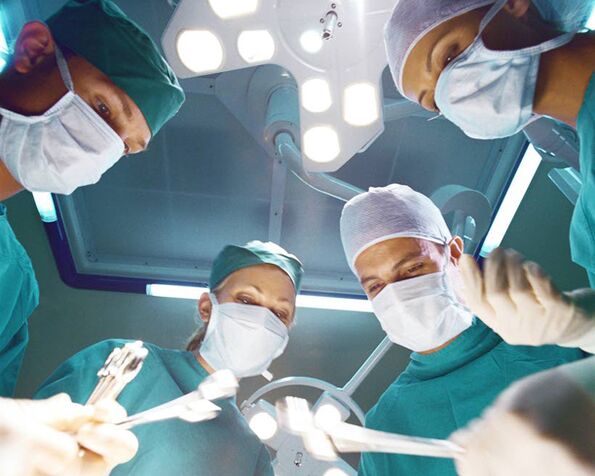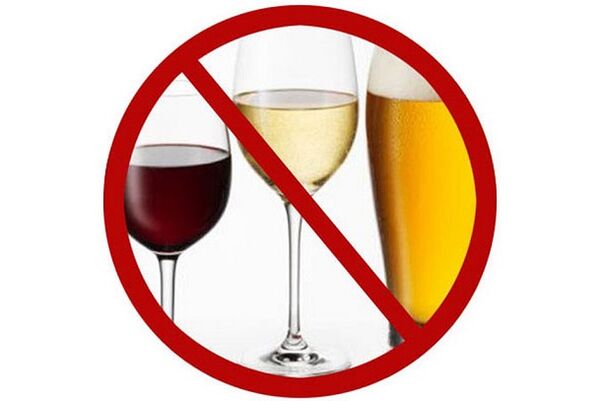Surgical intervention is a serious operation that must be properly prepared. All recommendations in this regard should be given by a specialist.
Special attention should be paid to diet and alcohol consumption after surgery. Indeed, in some cases, even a small dose of ethanol contained in alcoholic beverages can damage a person's health and even life.
In order not to harm your own body and contribute to an early recovery, you must heed the tips given in this article.

Are local anesthetics and anesthetics compatible with alcohol?
Everyone should understand that narcotics and alcohol are two incomparable concepts. And there are good reasons for this. To start, let's learn the types of anesthesia - this is local and general anesthesia.
Anesthesia is the introduction of a drug into the human body to promote temporary tissue desensitization. There is a blockage in the transmission of nerve impulses, so the signals do not enter the brain and there is no opposite reaction. Therefore, a person does not feel pain during surgery.
Local anesthesia has a specific duration of action. As a rule, this is the time allotted to the activity and an additional 2-3 hours after that. A person gradually leaves the state of anesthesia, but alcohol after local anesthesia can lead to the fact that its effect will end immediately. And this can cause pain, which is quite difficult to get rid of with the help of medication.
Can I drink alcohol after anesthesia (general)? This is not worth doing, as this can lead to much more serious consequences than in the previous case:
- Severe pain at the site of surgery.
- Muscle tissue strain or weakness.
- Headache, dizziness.
- Nausea, vomiting and as a result dehydration.
- Anaphylaxis.
- Disorders of the work of the nervous system.
Drinking alcohol after surgery and possible consequences
Doctors don't recommend drinking alcohol after surgery for a reason. And it is not about the first day or week after the procedure. The period of abstinence can last several weeks, even months. Its duration depends on the complexity of the procedure performed and the patient's health condition.
Before surgery or at the end of surgery, the attending physician makes certain recommendations to the patient. They relate to lifestyle, nutrition, drinking and more. And he gives them not only that, but to avoid undesirable consequences and complications.
Why not drink alcohol after surgery:
- Using anesthetics that are incompatible with alcohol. Otherwise, it will be dealt a severe blow to health, which can affect the functioning of vital systems and organs.
- Prescribe antibiotics for rehabilitation after surgery. They are also incompatible with alcohol. Moreover, even at the end of the course of taking them, you should give up strong drinks for at least a week. Otherwise, their effects may be minimized.
- Poor tissue healing. This can be stimulated by the drink causing fermentation in the body. It could be beer. Therefore, it is better for you to refuse it.
- Weakens the body's immune defenses. If you start drinking alcoholic beverages the day after surgery, you can affect your immune system. The result will be underlying diseases or exacerbations of chronic conditions.
- Blood clotting disorder. A small dose of ethanol entering the body can cause internal bleeding, slow healing and poor skin damage.
In addition to all of this, several surgical interventions involve the complete elimination of ethanol use in any form. Because it can cause significant harm to the body and affect the quality of life of people in the future.
Experts agree that after surgery, the body needs time to recover. And for this, it is necessary to create the right conditions - adhere to the correct diet and completely give up alcohol for at least 30 days.

Expected time to drink alcohol after surgery
As mentioned, the time after which alcohol can be consumed depends on the patient's medical condition and the complexity of the surgery. Therefore, it is difficult to unambiguously define the period after which it can be used. And the doctor should make any recommendations in this regard, whom one should contact with this question.
How long after surgery can you drink alcoholic beverages (approximate conditions):
- Alcohol after endoscopy - it can be completely banned in some cases. This is due to the fact that after laparoscopy, in order to maintain a normal body, people are forced to take certain drugs throughout their life. Almost all of them are incompatible with alcohol. If you have your gallbladder removed, you need to give up alcohol completely. After the laparoscopy is performed in the gynecological department, you can purchase a small amount of alcohol after a month and a half.
- The timing of drinking alcohol after laparotomy is the same as in the previous case.
- Beverages containing ethyl alcohol should be handled with extreme caution after heart surgery. You should not overdo them, as this can cause serious problems - heart failure, stroke, heart attack. If there are no postoperative complications, alcohol can be used no earlier than 3-4 weeks after surgery.
- The optimal period of abstinence from alcohol after eye surgery is 3 months. This time is enough for full recovery or pain relief. Why exactly 3 months? The reality is that in most cases, the rehabilitation period lasts from 1 to 3 months. At this point, the patient is prescribed recovery drops or tablets, and almost all of them are incompatible with alcohol.
- Plastic surgery - it is recommended to give up alcoholic beverages for a period of 2 to 4 weeks. If there are any complications or the patient is assigned a rehabilitation course, it can take up to several months.
- After removal of the pancreas, alcohol should not be consumed. Especially in the first 2-3 years after operation.
- Appendectomy - alcoholic beverages are strictly prohibited for 3 weeks, as are certain foods.
- Surgery to remove the tumor - alcohol is done only with the permission of the doctor. Indeed, in order to restore the body, drugs that can be prescribed are forbidden to be taken with alcohol.
All terms given above are conditional and established exclusively by the attending physician. Before taking another dose of alcohol, the risk to the body should be kept in mind. After the operation, he weakened, needed to be rehabilitated and followed the recommendations of the specialist. Therefore, do not overload it with ethanol, which will significantly prolong the recovery time.


























